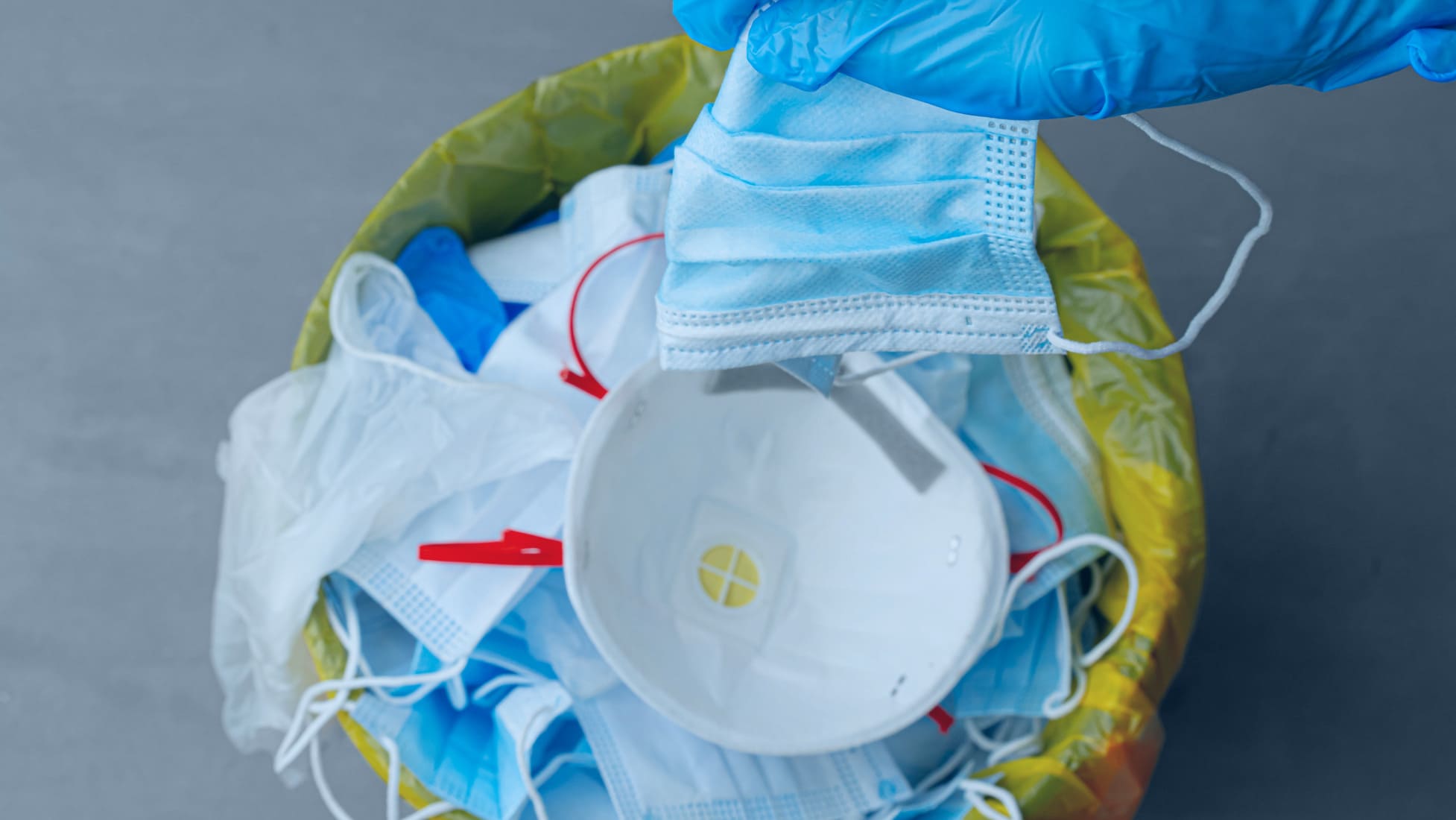Medical waste, often considered a byproduct of healthcare services and activities, encompasses a wide range of materials, from used needles and syringes to soiled dressings and surgical instruments. This waste category is not limited to physical items; it also includes chemical, radioactive, and pharmaceutical waste. Understanding the diverse nature of medical waste management services is the first step in effective management.
The risks associated with improper disposal of medical waste are significant. Sharps, for instance, can lead to injuries and transmission of infectious diseases if not handled correctly. Chemical waste poses environmental hazards, potentially contaminating water sources and soil. Therefore, it is imperative for healthcare facilities to adopt stringent waste management protocols.
The Importance of Medical Waste Management
Efficient medical waste management goes beyond mere regulatory compliance; it is a critical component of public health. Inappropriate handling and disposal of medical waste can have dire consequences. It poses serious health risks, particularly in the spread of infectious diseases, which can be exacerbated in environments where waste is not managed correctly.
From an environmental perspective, improper disposal of medical waste contributes to pollution. It can contaminate water systems, affect air quality, and harm wildlife. The environmental impact is far-reaching, making it a global concern. This is where the role of advanced waste collection software becomes increasingly significant, offering solutions that are not only effective but also sustainable.
Legally, healthcare facilities are bound by a myriad of regulations regarding the disposal of medical waste. Non-compliance can lead to heavy penalties, legal action, and damage to reputation. Hence, understanding and adhering to these regulations is paramount for any healthcare provider.
Current Trends in Medical Waste Management
The field of medical waste management is evolving rapidly, driven by technological innovation and an increased focus on sustainability. One of the most significant trends is the integration of advanced waste collection software, which is transforming the way healthcare facilities approach waste disposal.
This software provides a comprehensive solution for tracking, managing, and disposing of medical waste more efficiently. It offers real-time monitoring capabilities, ensuring that waste is handled in compliance with regulatory standards. Additionally, this technology aids in the optimization of waste collection routes and schedules, reducing the carbon footprint associated with waste disposal.
Another trend in the industry is the shift towards more sustainable disposal methods. Techniques such as autoclaving, which uses steam to sterilize waste, and incineration, which completely destroys waste materials, are being refined to minimize environmental impact. Moreover, there’s an increasing emphasis on recycling and reprocessing materials wherever possible, further contributing to environmental conservation.
The adoption of these trends and technologies not only ensures compliance with stringent regulations but also enhances the overall efficiency and effectiveness of medical waste management. This is particularly crucial in a world where environmental consciousness and public health safety are paramount.
Criteria for Choosing the Right Service Provider
Selecting the right medical waste management service is a decision that holds significant implications for healthcare facilities. There are several critical criteria to consider to ensure that the service provider aligns with your needs and regulatory requirements.
Compliance with Regulations:
The foremost criterion is the provider’s adherence to local, state, and federal regulations. A reputable service will have a thorough understanding of the legal landscape and ensure that your facility remains compliant with all waste management laws.
Use of Advanced Technology:
In today’s digital age, choosing a provider that utilizes advanced waste collection software is a smart move. This software enhances the efficiency of waste management processes, providing facilities with detailed tracking, improved safety, and compliance reporting capabilities.
Experience and Reputation:
The provider’s experience in the medical waste management industry is crucial. A service with a proven track record and positive testimonials from other healthcare facilities can be a reliable indicator of their capability to handle your waste management needs effectively.
Waste Handling Capabilities:
Evaluate the range of waste types the service can handle. A comprehensive service provider should be equipped to manage all forms of medical waste, including sharps, pathological waste, pharmaceuticals, and chemical waste.
Environmental Responsibility:
With growing environmental concerns, it’s important to choose a provider that prioritizes sustainable practices. This includes methods of waste reduction, recycling, and disposal techniques that minimize environmental impact.
Customer Service and Support:
Good customer service is essential. The provider should offer prompt and efficient support, addressing any concerns and ensuring that the waste management process runs smoothly for your facility.
Evaluating Advanced Waste Collection Software
In the realm of medical waste management, advanced waste collection software plays a pivotal role. When evaluating such software, it’s important to consider several key features that can significantly enhance the efficiency and compliance of waste management processes.
Real-Time Tracking and Monitoring:
One of the most critical features is the ability to track and monitor waste in real time. This ensures that the waste is handled, stored, and disposed of according to regulatory guidelines, reducing the risk of non-compliance.
Automated Scheduling and Routing:
The software should offer automated scheduling and routing capabilities. This optimizes waste pickup and disposal operations, making them more efficient and reducing the carbon footprint associated with transportation.
Regulatory Compliance Reporting:
The ability to generate detailed compliance reports is essential. This feature helps facilities maintain transparency and provides proof of compliance with regulatory bodies.
User-Friendly Interface:
A simple, intuitive interface is crucial for ensuring that staff can easily use the software without extensive training, thereby facilitating smoother adoption and operation.
Customization and Scalability:
The software should be customizable to meet the specific needs of your facility and scalable to adapt to growing or changing waste management requirements.
Data Security and Privacy:
Given the sensitive nature of medical waste data, the software must have robust security protocols to protect against data breaches and ensure privacy compliance.
Support and Maintenance:
Reliable customer support and regular maintenance updates from the software provider are essential for the smooth operation of the system.
Implementing advanced waste collection software not only streamlines the waste management process but also contributes to a safer, more compliant, and environmentally friendly operation.
Making the Decision
Selecting the right medical waste management service is a decision that requires careful consideration. Before finalizing your choice, consider taking the following steps:
Conduct Thorough Research:
Gather information on various providers, assessing their services against your facility’s specific needs. Look for reviews and testimonials to gauge their reliability and performance.
Evaluate Compliance and Technology Integration:
Ensure that the provider not only complies with all regulatory standards but also integrates advanced technology, like waste collection software, to enhance their service delivery.
Request Proposals and Compare:
Invite proposals from multiple providers. Compare these proposals not just on cost but also on service quality, technology used, and environmental practices.
Visit Facilities and Meet the Team:
If possible, visit the provider’s facility and meet their team. This can give you a better understanding of their operations and commitment to quality service.
Check for Ongoing Support and Communication:
A good provider will offer ongoing support and maintain open lines of communication. This is crucial for addressing any future issues or changes in requirements.
Once a provider is chosen, it’s important to continuously assess their performance and ensure that they remain compliant with evolving regulations and standards. Regular communication and feedback can help maintain a high-quality service that meets your healthcare facility’s needs.
Conclusion
In conclusion, selecting the right medical waste management services is not just a regulatory necessity but a crucial step towards ensuring public health and environmental safety. By understanding the types of medical waste, recognizing the importance of efficient management, keeping abreast of current trends, and carefully evaluating service providers and their technology, such as advanced waste collection software, healthcare facilities can make informed decisions. This guide aims to serve as a comprehensive resource, assisting facilities in navigating the complexities of medical waste management. Remember, the choice you make today impacts not just your facility, but the broader community and environment.



